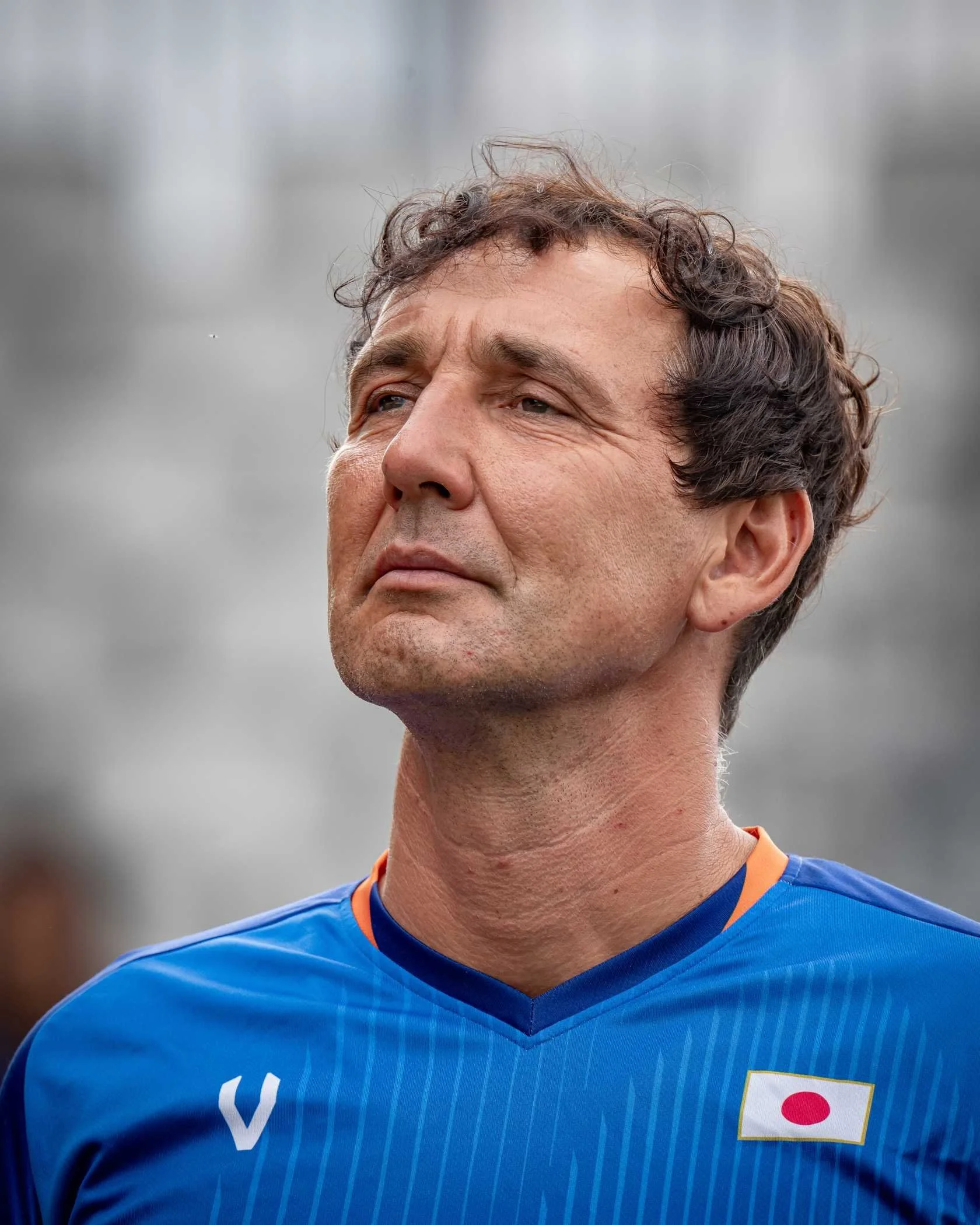Cross-Cultural Alliance
Aware that the team could include people seeking asylum, the Homeless World Cup team from Japan tried something a little different this year: it expanded its recruitment and therefore team make-up to include two Ukrainian refugees.
At the Homeless World Cup, asylum seekers are welcomed. Players can take part if they have experienced homelessness or social exclusion within the past year, this includes people who are or have been asylum seekers, those in rehabilitation or reintegration programmes or those who earn their income through street papers.
Participants represent the country where they currently reside, not necessarily their country of origin. This means that asylum seekers and refugees, like those from Ukraine, can proudly wear the colours of their host nation, in this case, Japan, while also maintaining a deep connection to their homeland.
Image: Anita Milas
This inclusive eligibility is at the heart of the Homeless World Cup’s mission: to use football as a means of rebuilding lives, fostering belonging and breaking down barriers.
For asylum seekers, the tournament offers a sense of community, a chance to find stability and a powerful platform to share their stories of resilience and hope.
Maksym Simoroz was one of the Ukrainian–Japanese team players. Speaking in a mix of English and Japanese, he outlined how a Ukrainian came to be in Japan.
“I love people. I can’t possibly shoot other people because I love peace and love. I love Ukraine. I love all nationalities. I don’t have enemies,” he explains. That left him, a man between the ages of 25 and 60 and facing conscription, with no choice but to leave his war-torn homeland.
Maksym first went to Spain, but found it really crowded. It was then that he heard about an invitation the Japanese government extended to Ukrainian people. The offer involved a visa, safe haven and an apartment.
“It’s my dream,” he explains. “I realised I want to change my life. I want to change my move to Japan.”
So he and his partner took up the invitation. Although his relationship didn’t survive the transition long term, Maksym stayed on and has now called Japan home for three and a half years. “Japan is very friendly. It’s incredible,” he says. He’s also settled in to his new home while being able to retain connections with his previous one.
Image: John Anderson
Maksym works remotely for a Ukraine business from Japan, spanning two cultures and two timezones, and he also hopes to further improve his English to be trilingual and to open up more work opportunities with Japanese companies. (English is the language many Japanese employees speak.) In the interim, he’s been able to get involved with the street soccer program and travel to represent Japan and, indirectly, Ukraine, at the 2025 Homeless World Cup.
Maksym is one of a number of Ukrainian refugees representing their adopted nations, which include Japan, Lithuania, Bulgaria, and Switzerland. The players have forged transnational bonds with their fellow Ukrainian countrymen and adopted-nation teams—so much so that at the time we spoke, Japan had just played a friendly against an assembly of the other Ukraine and adopted-nation players.
This displacement and reconnection, of course, remind him of the family and friends still in Ukraine. His mother, 84, and brother, 60, remain in Ukraine. With the Homeless World Cup playing out in the geographically adjacent Oslo, Maksym was hoping to travel to meet up with his mother briefly after the tournament in nearby Poland.
He’s acutely aware of the preciousness of that meet-up, and the precariousness of his family’s existence. Three months ago, his mother’s and mother’s neighbour’s houses were bombed—windows, doors, and more were blown out.
At the same time, Maksym is abundantly aware of the precious opportunity Japan and participating in the Homeless World Cup have afforded him. “We have a big opportunity. People make the choice to change their life or not change their old life,” he says. “This tournament gives the opportunity for this changing life.”
The Homeless World Cup is more than a tournament: it’s about dignity, confidence and belonging.
Written by Fiona Crawford
Photos by Anita Milas John Anderson


